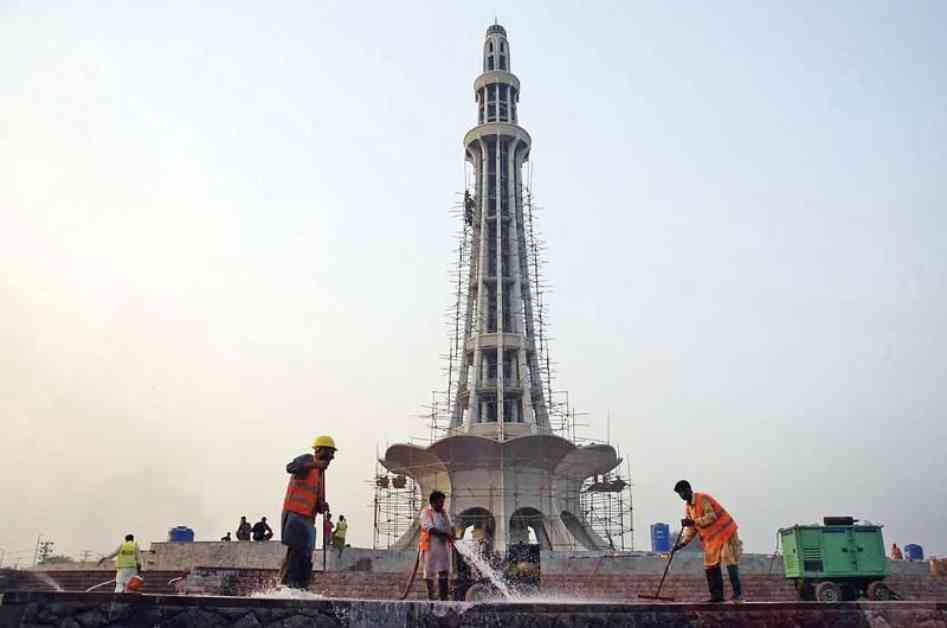Lahore Administration Blocks PTI’s February 8 Minar-e-Pakistan Rally
In a recent turn of events, the Lahore administration has made the decision to deny the Pakistan Tehreek-e-Insaf (PTI) permission to hold a rally on February 8. This denial comes in light of security concerns raised by the District Intelligence Committee, as highlighted in an official notification issued on Thursday.
The notification explicitly stated that due to security reasons, PTI would not be granted permission to gather at Minar-e-Pakistan. This decision was influenced by various factors, including the upcoming major events scheduled to take place in Lahore on the same day. These events include a cricket match, a cattle show, and a speaker conference, all of which contribute to heightened security measures in the city.
Moreover, the administration’s decision was further shaped by PTI’s previous activities, particularly referencing the events of May 9, which raised serious apprehensions regarding the safety of public assemblies. These concerns played a pivotal role in the denial of permission for the proposed rally.
Earlier today, the Lahore High Court had instructed the Lahore deputy commissioner to deliberate on PTI’s request for permission to hold the rally at Minar-e-Pakistan by 5 pm. PTI had approached the court on February 3, seeking approval for the rally as a means to protest against what they perceived as a violation of their electoral mandate.
On January 29, PTI’s Punjab Chief Organizer, Aaliya Hamza, had publicly announced the party’s intention to organize a rally at Minar-e-Pakistan on February 8 to voice their dissent against the alleged infringement on PTI’s mandate. Subsequently, PTI submitted an application to the deputy commissioner’s office, formally requesting official authorization for the event to take place at Iqbal Park.
In a statement to the media outside the DC office, PTI leader Aliya Hamza reiterated the party’s stance, emphasizing the significance of observing ‘Youm-e-Siyah [Black Day]’ on February 8, marking the anniversary of what they believed was the theft of the public mandate one year prior. Hamza made it clear that PTI would not be willing to accept any restrictions this time, affirming that the rally would proceed despite the administration’s refusal.
Security Concerns and Public Safety
The primary grounds cited by the Lahore administration for denying PTI permission to hold the rally revolved around security concerns and ensuring public safety. With several major events already scheduled for February 8, the city’s security resources are stretched thin, necessitating cautious decision-making to prevent any potential threats or disturbances. The administration’s proactive approach highlights their commitment to safeguarding the well-being of citizens and maintaining order during large-scale public gatherings.
Political Standoff and Protest Dynamics
The political tension between PTI and the administration underscores a broader narrative of dissent and resistance within the political landscape. PTI’s persistent efforts to challenge perceived injustices and assert their democratic rights through public protests reflect a deeper struggle for political legitimacy and representation. By choosing to defy the administration’s decision and proceed with the rally despite the refusal of permission, PTI is sending a strong message of defiance and determination to uphold their principles.
In conclusion, the denial of PTI’s request for the February 8 rally at Minar-e-Pakistan marks a significant chapter in the ongoing saga of political activism and power dynamics in Lahore. The clash between security imperatives, political aspirations, and public mobilization underscores the complex interplay of interests and ideologies shaping the city’s socio-political landscape. As the situation unfolds, the resilience and resolve of both PTI and the administration will undoubtedly shape the future trajectory of public protests and political engagements in Lahore.









